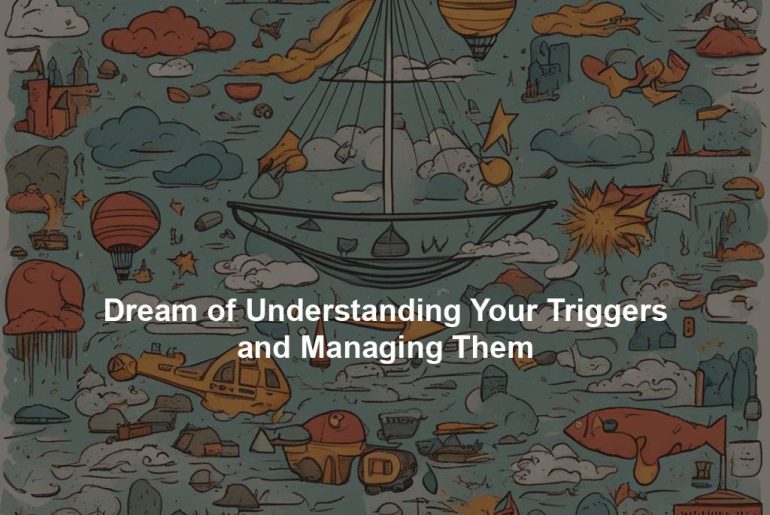Understanding your triggers and learning to manage them is a crucial aspect of personal growth and emotional well-being. In our daily lives, we encounter various situations and people that can push our buttons and evoke strong emotional responses. These triggers can stem from past experiences, unresolved traumas, or deeply ingrained beliefs. By becoming aware of these triggers and developing strategies to cope with them, we can improve our relationships, mental health, and overall quality of life.
What are Triggers?
Triggers are stimuli or situations that provoke a strong emotional response in us. They can be external, such as a specific sight, sound, or smell, or internal, such as a thought or memory. Triggers are often linked to past experiences or traumas, and they can manifest as feelings of anger, anxiety, sadness, or fear. Identifying your triggers is the first step towards understanding why certain situations affect you the way they do.
For example, if you have a fear of public speaking, the trigger could be related to a negative experience you had in the past, such as being ridiculed or embarrassed in front of a group. By recognizing this trigger, you can begin to address the underlying fears and insecurities that may be contributing to your fear of public speaking.
Understanding Your Triggers
Understanding your triggers involves exploring your thoughts, emotions, and beliefs to uncover the root causes of your reactions. This process requires self-reflection, introspection, and sometimes the assistance of a therapist or counselor. By delving deep into your past and present experiences, you can gain insight into why certain triggers have such a powerful impact on you.
For instance, if you have a tendency to become defensive in conflicts with others, the trigger could be related to feelings of inadequacy or a fear of rejection. By examining these underlying beliefs, you can begin to challenge and reframe them, leading to healthier responses in conflict situations.
Managing Your Triggers
Once you have identified and understood your triggers, the next step is to develop strategies for managing them effectively. There are various techniques you can use to cope with triggering situations, such as mindfulness, deep breathing, grounding exercises, and cognitive restructuring. These strategies can help you stay calm, rational, and in control when faced with challenging triggers.
For example, if you feel triggered by criticism from others, you can practice self-soothing techniques, such as positive self-talk or visualization, to counteract the negative thoughts and emotions. By creating a toolbox of coping mechanisms, you can navigate triggering situations with greater ease and resilience.
The Benefits of Managing Your Triggers
Learning to understand and manage your triggers can have numerous benefits for your mental health and overall well-being. When you are able to identify and address your triggers, you can experience greater emotional stability, improved relationships, and increased self-awareness. By taking control of your reactions and responses, you can break free from old patterns and create new, healthier ways of coping with challenging situations.
In conclusion, the dream of understanding your triggers and managing them is a journey of self-discovery and personal growth. By exploring the root causes of your reactions, developing strategies to cope with triggering situations, and reaping the benefits of emotional resilience, you can lead a more fulfilling and empowered life.

